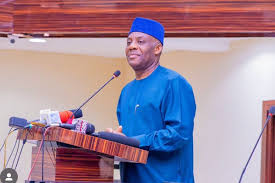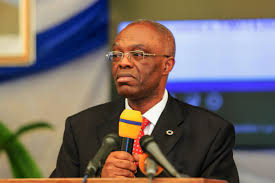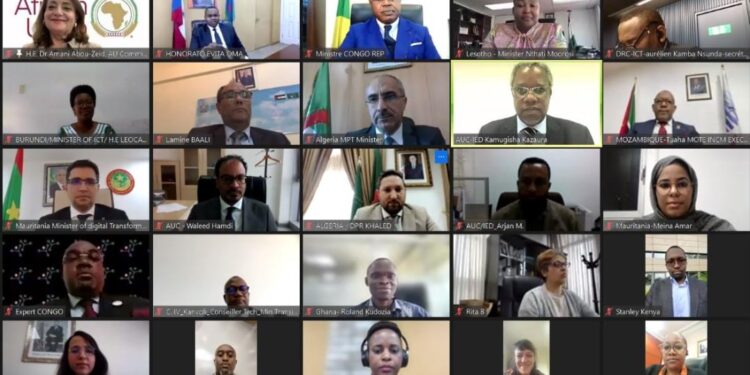
FG integrates AI in curriculum delivery as Nigeria hosts Int’l conference on digital education
- Education
- No Comment
- 20

As part of ongoing reforms in the education sector, the Minister of Education, Dr. Olatunji Alausa, announced the integration of Artificial Intelligence (AI) in curriculum delivery, emphasizing the ministry’s commitment to inclusive, future-ready education.
The announcements were made at the International Conference on Smart Education (ICSE) 2025, held at the Universal Basic Education (UBEC) Digital Resource Centre in Abuja.
The high-level event, convened by UBEC in collaboration with the Korean International Co-operation Agency (KOICA), gathered policymakers, development partners, school administrators, teachers, and digital education experts from across Nigeria and beyond.
Dr. Alausa noted that ICSE 2025 aligns with President Bola Ahmed Tinubu’s Renewed Hope Agenda, emphasizing human capital development. Highlighting Nigeria’s youthful population—44% under the age of 15—he stressed the urgency of re-engineering the education system to harness this demographic strength for a digital-driven future. “We must equip our children with 21st-century skills to avoid a demographic disaster,” he stated.
In his goodwill message, the Ambassador of the Republic of Korea to Nigeria, Mr. Kim Pankyu, praised the collaboration between Korea and Nigeria in advancing smart education. He commended UBEC’s Smart Schools Programme and reaffirmed KOICA’s commitment to supporting Nigeria’s digital transformation in basic education. He noted that Korea’s experience shows how digital education can drive social inclusion and economic growth.
In her welcome remarks, UBEC Executive Secretary, Aisha Garba, asserted that innovation in education is crucial for progress, inclusion, and global competitiveness. She highlighted the conference’s objectives of knowledge-sharing, addressing challenges in tech-based education, promoting scholarship, and accelerating development as central to UBEC’s mandate for equitable, inclusive, and quality basic education for every Nigerian child.
“In a world increasingly defined by technology, fulfilling this mandate demands that we rethink education delivery, reimagine learning environments, and embrace innovation to bridge learning gaps and unlock the potential of every learner,” she emphasized.
Garba outlined UBEC’s systematic and sustainable model for integrating digital innovation into teaching and learning. This model focuses on: Empowering teachers and education managers with modern pedagogical strategies.
Creating culturally relevant digital resources aligned with Nigeria’s national curriculum, in partnership with NERDC and EdTech companies.
Ensuring access to smart devices, VR labs, offline kits, and solar-powered solutions for remote schools.
In her keynote address, Professor Francisca Oladipo, Vice-Chancellor of Thomas Adewumi University, praised UBEC and KOICA for hosting a transformative event, asserting that “Smart education is not a luxury but a necessity to unlock Nigeria’s potential.” She called for collective action from government, parents, teachers, and tech innovators.
Prof. Oladipo highlighted Nigeria’s projected population growth—to surpass 400 million by 2050, with 40% under the age of 15—as both a challenge and an opportunity. Despite obstacles, she expressed optimism, citing: Expanding mobile access, Growing EdTech innovations, and State-level initiatives in smart education across Abia, Enugu, Jigawa, and Niger States.
She also mentioned federal programs like UBEC’s Teacher Internship Scheme and the National Digital Learning Policy as strategic enablers.
The conference saw participation from several African countries, including Benin, Cameroon, Conakry, Congo, Ivory Coast, Kenya, Sao Tome, Sierra Leone, and Togo.
The event served as a platform to reaffirm Nigeria’s commitment to leveraging digital technology for transforming basic education, aligning with global standards for inclusive and tech-driven learning.
By Joseph Erunke
https://www.vanguardngr.com/2025/05/fg-integrates-ai-in-curriculum-delivery-as-nigeria-hosts-intl-conference-on-digital-education/





